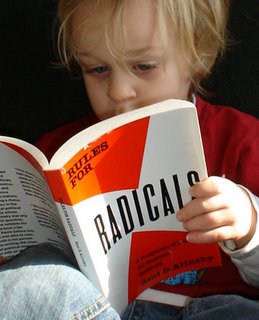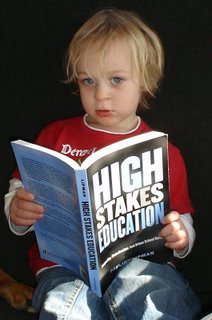Policy Debate Charter School in Chicago?
 Today, I went to the park with Charlie. He spent the morning chasing ducks and is now off in dreamland. As for me, I just got of the phone with Chicago Public Radio. They are working on a piece about debate for the Chicago Matters Series. The conversation got me thinking about how urban debate was my most rewarding experience in urban education. Ever heard about policy debate in Chicago? No? Then you are not alone. As an means to improve academic achievement, policy debate is underutilized in Chicago, and that is a travesty. In terms of academic rigor, policy debate outpaces even the most demanding academic programs, and unlike International Baccalaureate programs and magnet schools, debate is open to students across the economic, geographic, and academic spectrum. Yet, debate isn’t really talked about at 125 South Clark (the Chicago Board of Education) as a means to improve academic achievement across the system. I have seen the power of policy debate to transform students into advocates and scholars. Check out the National Association of Urban Debate Leagues for more information about the power of debate. Perhaps the folks down at 125 just don’t get it. They don’t see the spark in the eyes of students as they encounter the complex rhetoric, research, and philosophies that make up policy debate. They don’t see kids at schools with single digit academic achievement reading and coming to terms with philosophers like Foucault. Note: these are the kids who are increasing academic achievement at these schools because, for them the PSAE is important as a means to open college doors. No, the folks at 125 don’t see kids actively debating for 12 hours in a weekend. I’m talking 12 hours on point, at full focus. God, teachers would kill to see this kind of attention in their classes. How’s this for an idea—a policy debate charter school? Think about it. The centerpiece of the school would be each year’s debate resolution. That means that the curriculum would actually change annually! No more teaching the same content over and over again. Of course kids would take all the core subjects, but the academic focus would be in preparing for policy debate tournaments. This type of charter school would garner national attention and it would be an easy sell in terms of partnering with any of a number of university debate programs in the immediate area. A policy debate charter school would be a cutting edge place where students would learn the language of power and politics. Since debate teaches advocacy, what a better way to revitalize struggling neighborhoods than to teach children the tools that make the policy wheels in our nation work? A policy debate charter school would not only produce top notch policy debaters, but more importantly top notch college bound citizens. A policy debate charter school would be a radical departure from the status quo, even among charter schools. So, let’s give it a try. Why not? If you chase ducks in the park, you just may catch one. |







